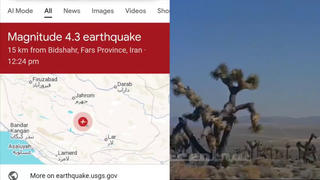
Did NASA data show that global warming is not causing any polar ice retreat? No, that's not true: The conclusion that there is no polar ice retreat is a false result of "cherry picking" data, according to the scientists who are referenced in the 2015 story. In fact, data from NASA at that time and since revealed polar ice retreat. Although four years old and still wrong, it became viral again in June 2019.
The story originated from an article (archived here) published by Forbes on May 19, 2015 under the title "Updated NASA Data: Global Warming Not Causing Any Polar Ice Retreat". It opened:
Updated data from NASA satellite instruments reveal the Earth's polar ice caps have not receded at all since the satellite instruments began measuring the ice caps in 1979. Since the end of 2012, moreover, total polar ice extent has largely remained above the post-1979 average. The updated data contradict one of the most frequently asserted global warming claims - that global warming is causing the polar ice caps to recede.
This is an example of a recent social post of the story, which suggests people are sharing without realizing the story is more than four years old:
The best debunk of this false Forbes reporting came from the researchers at the Illinois Unversity's atmospheric sciences department who were sourced in the story itself. They felt compelled to publish a rebuttal accusing the Forbes writer of "cherry picking" the research:
The author implies that since the most recent two years of polar sea totals are near the long-term average, that global warming is not causing the polar ice caps to recede. Wikipedia defines cherry-picking as: the act of pointing to individual cases or data that seem to confirm a particular position, while ignoring a significant portion of related cases or data that may contradict that position.
Global sea ice totals vary from one year to the next. When looking for impacts of global warming, climate scientists take a longer-term view. The long-term record of global sea ice (illustrated below) shows a long-term decline of global sea ice of about 5.5%. One is free to argue whether this decline in global sea ice is important, or whether it is a result of human impacts on the climate; however, it is misleading to claim that polar sea ice has not decreased over the historic record. In his last paragraph, Taylor correctly asserts that receding polar ice caps are an expected result of a warming planet. In fact, the data shows that this is exactly what is happening. The rest of Taylor's article is just whitewash intended to distract readers from these facts.
These researchers suggested to Forbes that they follow the lead of the Washington Post, whose ombudsman debunked their own columnist George Will's "Dark Green Doomsayers" column that also misstated the ice melting science in 2009.
NASA has been closely tracking ice mass loss in Antarctica and Greenland through it's GRACE satellites:
Data from the GRACE satellites show that ice sheets in both Antarctica and Greenland are losing mass. The continent of Antarctica has been losing about 118 gigatons of ice per year since 2002, while the Greenland ice sheet has been losing an estimated 281 gigatons per year. One gigaton equals a billion metric tons.
"Earth is losing a huge amount of ice to the ocean annually, and these new results will help us answer important questions in terms of both sea rise and how the planet's cold regions are responding to global change," said onetime University of Colorado Boulder physics professor John Wahr, who helped lead a study of the ice between 2003 and 2010. "The strength of GRACE is it sees all the mass in the system, even though its resolution is not high enough to allow us to determine separate contributions from each individual glacier."
The latest data available is even more dire. Australian National University researcher Dr. Paul Tregoning said in a June 2019 report that satellites are finding major ice melting in the southern hemisphere:
Dr. Tregoning said the ice loss in the Totten Glacier region, east of Australia's Casey station in Antarctica amounted to around 1.4 billion tonnes of water, which would fill around 570,000 Olympic-sized swimming pools.
"We could be watching the beginning of serious change to the ice sheet," Dr. Tregoning said.
"This is very concerning, since a destabilisation of the ice sheet in that region could affect the global sea level by many metres."
















